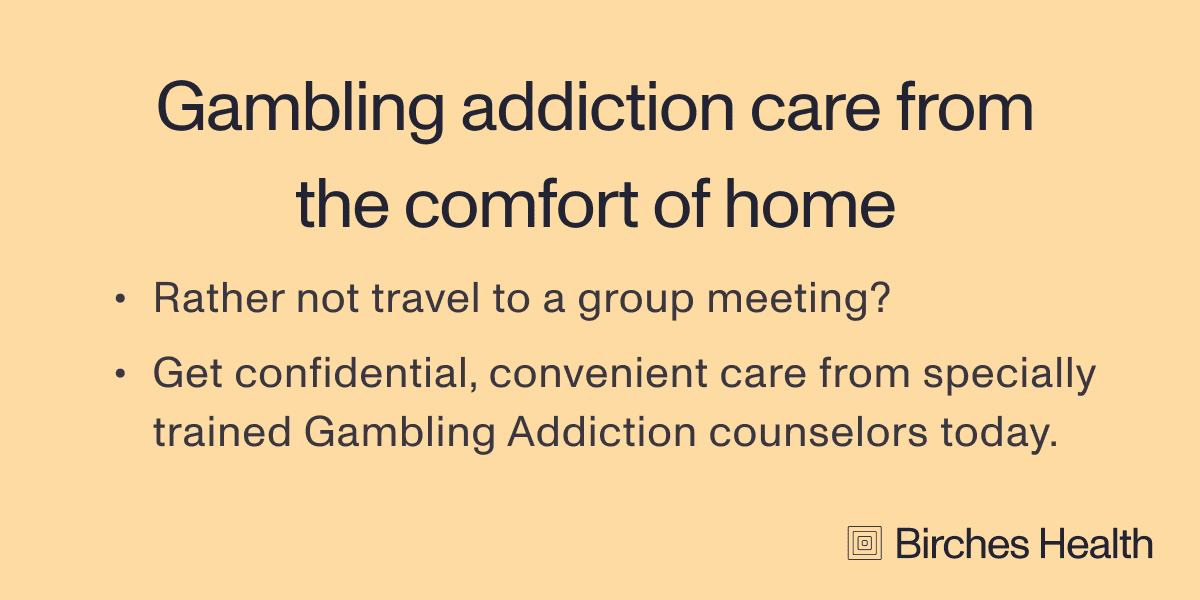Gambling addiction care should be with certified counselors
Published:
Feb 10, 2025
,
06:59 p.m.
ET
Gambling has been a part of U.S. history dating back to the 1600s, with many advancements and changes in the gambling landscape since that time. One notable change in recent decades has been the amount of people being diagnosed with and suffering from gambling addiction.
Historically, treatment for gambling addiction has been difficult to access for those who need it. Finding a counselor that is specially trained and certified in treating gambling addiction has been very hard. Additionally, it hasn’t been covered by insurance, and many struggling with gambling disorder have not been able to afford the full cost of specialized, individual treatment. Therefore, community resources like Gamblers Anonymous (GA) have been the only realistic options for support. And while GA has been a valuable resource that has made a positive impact on thousands of people’s lives, it is not the best option for all, including those who need scheduling flexibility or are not within easy travel distance to the closest meeting.
Gambling addiction is a unique disorder that requires specialized training to provide the best care. There are a variety of approaches professionals can take to obtain the necessary certification and training to be qualified to provide gambling-specific treatment.
Why gambling-specific certification and specialization matter when treating gambling addiction
Gambling disorder is a distinctive diagnosis and warrants care from professionals who have specialized training in treating it. Even identifying gambling addiction can be difficult. Gambling disorder is known as an “invisible” or “hidden” addiction, as there may be no visual signs or outward indicators that someone is struggling.
When providing general mental health counseling for individuals, it’s possible that a generalist counselor may miss the signs of a gambling addiction, potentially misdiagnose them and ultimately not treat what may be a primary disorder. Additionally, there have been many cases of therapists feeling confident in their ability to treat gambling disorder, despite not having the proper training or credentials, which can lead to ineffective treatment approaches or even severe adverse consequences, as this is a highly sensitive patient population with high rates of suicidal ideation.
Nowadays, there are trusted certifications available to clinicians to become more knowledgeable and qualified to identify and treat gambling addiction.
How do counselors get certified to treat problem gamblers?
There are different paths that a clinician can take to become a certified professional gambling addiction counselor. The international gold-standard certification organization is called the International Problem Gambling and Gaming Certification Organization (IPGGC), which until recently was known as the International Gambling Counselor Certification Board (IGCCB). There are also gambling-addiction-specific training programs that one would have to complete in order to call themselves a certified gambling addiction counselor.
IPGGC (formerly known as IGCCB) certifications
There are two main levels of IPGGC certification that help ensure that counselors are trained and qualified to work with those who are at-risk of developing problematic gambling habits or are currently struggling with a gambling disorder. The ICGC-I certification is for clinicians who work directly with people affected by gambling addiction and requires 100+ direct contact hours. The ICGC-II is an advanced certification that builds on the ICGC-I training and requires 2,000+ direct contact hours with individuals with gambling addiction.
The IPGGC also offers two other certifications, the International Gaming Disorder Certificate (IGDC), which allows clinicians to address video-game-related treatment, and Board Approved Clinical Consultant (BACC) certification that allows ICGC-II counselors who have met certain qualifications to provide supervision to ICGC applicants.

Preliminary and Renewable Gambling Endorsement certifications
Gambling Endorsement certifications available in some states also allow mental health and medical professionals to provide support to those suffering from gambling-related issues. There are two different types of endorsements that can be obtained, but different states require specific requirements to obtain a gambling endorsement, and not every state offers them. States where you can currently obtain a gambling endorsement certification include Ohio, Massachusetts and Nevada.
Preliminary Gambling Endorsement:
30 hours of gambling-specific training
Proof of supervisory relationship who has qualified gambling treatment experience
2-year timeline to advance to a Renewable Gambling Endorsement
Renewable Gambling Endorsement:
100 clinical hours of direct gambling disorder experience
Minimum of 4 hours of supervision with a gambling disorder qualified supervisor
Submission of an Experience Verification form that documents the hours
A total of 6 or more hours of gambling-specific education is required every two years to renew either gambling endorsement.
How to find a certified gambling addiction counselor
Access to specialized treatment for gambling disorder has expanded significantly over the past two years, and there are now certified counselors available across the country. Birches Health has built out a nationwide team of certified counselors that provide virtual gambling treatment anytime, anywhere. Birches also accepts all major insurance plans, helping make treatment for gambling addiction more affordable and accessible.
To get started with Birches Health, you can:
Call 833-483-3838
Email help@bircheshealth.com




